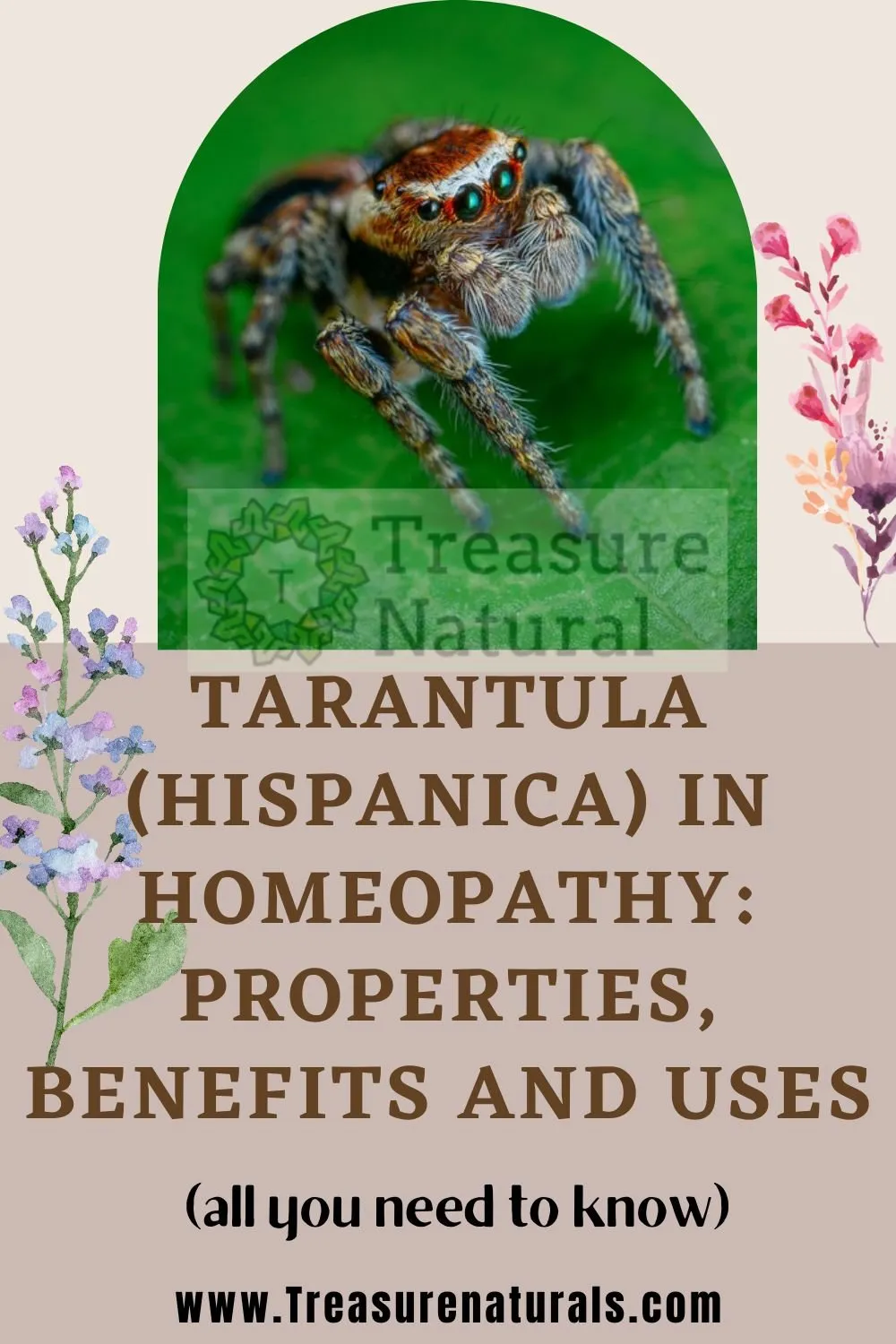Understanding Tarantula Child
Tarantula Child, though not a formally recognized medical term, is often used informally to describe children exhibiting certain behavioral patterns and emotional challenges. These children might display symptoms such as heightened anxiety, restlessness, difficulty concentrating, and social interaction issues. It’s crucial to understand that every child is unique, and these behaviors can stem from various underlying factors, including environmental influences, genetic predispositions, and emotional stressors. Recognizing and addressing these challenges early can significantly improve a child’s overall well-being. This article explores how homeopathy can offer a gentle and effective approach to support these children.
What is Tarantula Child?
The term “Tarantula Child” serves as a descriptive label, encompassing a range of behaviors often associated with children who experience significant emotional distress or struggle with behavioral regulation. These children may present with challenges related to anxiety, hyperactivity, and emotional outbursts. The specific symptoms and severity of these issues can vary greatly from child to child, making it essential to approach each case with a personalized understanding. The behaviors associated with “Tarantula Child” are not a formal diagnosis but rather a collection of symptoms that highlight the need for specialized care and support. Recognizing these patterns is the first step toward finding effective interventions that address the underlying causes and promote healthy development. It is important to consult with medical professionals for any diagnosis.
Symptoms of Tarantula Child

Children exhibiting “Tarantula Child” symptoms often display a complex array of behaviors that can significantly impact their daily lives. Common signs include excessive anxiety, manifesting as worry, fear, and nervousness in various situations. They may struggle to manage their emotions, leading to frequent outbursts, irritability, or emotional meltdowns. Hyperactivity is another prominent symptom, with children exhibiting restlessness, difficulty sitting still, and an inability to focus. Social difficulties, such as trouble making friends, avoiding social interactions, or struggling with social cues, are also common. Other symptoms include sleep disturbances, changes in appetite, and physical complaints like headaches or stomachaches. The recognition of these symptoms is crucial for initiating appropriate interventions and providing necessary support.
Conventional Treatments vs Homeopathy
Conventional treatments for the symptoms associated with “Tarantula Child” often involve a combination of therapies and, in some cases, medication. Cognitive Behavioral Therapy (CBT) is frequently employed to help children manage their anxiety and develop coping mechanisms. Other therapies like play therapy and occupational therapy can address specific challenges. In more severe cases, medication may be prescribed to manage symptoms such as anxiety or hyperactivity, such as stimulants or selective serotonin reuptake inhibitors (SSRIs). Homeopathy offers a different approach, focusing on individualized treatment based on the child’s unique symptoms and constitution. Homeopathic remedies aim to stimulate the body’s natural healing abilities, providing a gentler alternative that addresses the underlying causes of the child’s challenges.
Homeopathy and Its Principles
Homeopathy is a holistic system of medicine that views the individual as a whole, emphasizing the interconnectedness of the mind, body, and spirit. It’s based on the principle of “like cures like” (similia similibus curentur), meaning that a substance that causes symptoms in a healthy person can, in diluted form, cure similar symptoms in a sick person. Homeopathic remedies are highly diluted substances, prepared through a process of serial dilution and succussion (vigorous shaking). Homeopaths believe that this process enhances the therapeutic properties of the substance while minimizing any potential side effects. Homeopathy aims to stimulate the body’s innate healing response, addressing the root cause of the illness rather than simply suppressing symptoms.
How Homeopathy Works for Tarantula Child
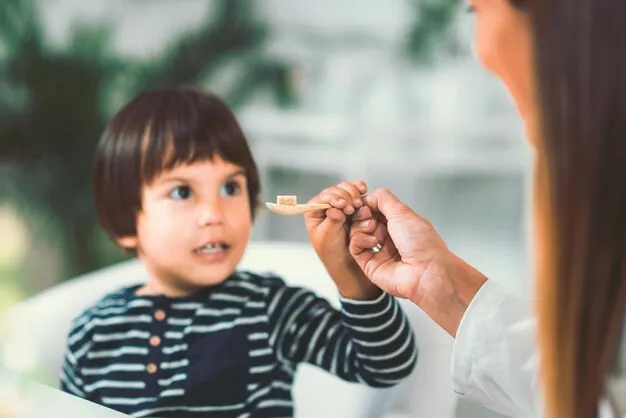
Homeopathy offers a unique approach to supporting children exhibiting “Tarantula Child” symptoms by focusing on individualized treatment plans. A qualified homeopath will conduct a thorough consultation to understand the child’s complete symptom picture, including physical, emotional, and mental aspects. They consider not just the presenting symptoms but also the child’s temperament, personality, and medical history. Based on this comprehensive assessment, the homeopath selects a specific remedy that matches the child’s individual symptom profile. The aim is to stimulate the body’s healing response, helping to restore balance and address the underlying causes of the child’s challenges. Homeopathy’s gentle and non-toxic nature makes it a potentially beneficial option for children, minimizing the risk of side effects and promoting overall well-being. Regular follow-up appointments allow the homeopath to monitor progress and adjust the treatment plan as needed.
Top 7 Benefits of Tarantula Child Homeopathy
Benefit 1 Enhanced Well-being
One of the primary benefits of homeopathy for “Tarantula Child” is the potential to enhance overall well-being. Homeopathic treatment considers the whole child, addressing not only the presenting symptoms but also the emotional and mental state. By stimulating the body’s natural healing mechanisms, homeopathy can help restore balance and vitality. Children often experience improvements in their energy levels, mood, and general sense of happiness. Homeopathy seeks to improve the child’s overall health by supporting the body’s natural ability to heal and find equilibrium. This holistic approach can lead to a significant improvement in the child’s quality of life, making them feel better both physically and emotionally.
Benefit 2 Reduced Anxiety
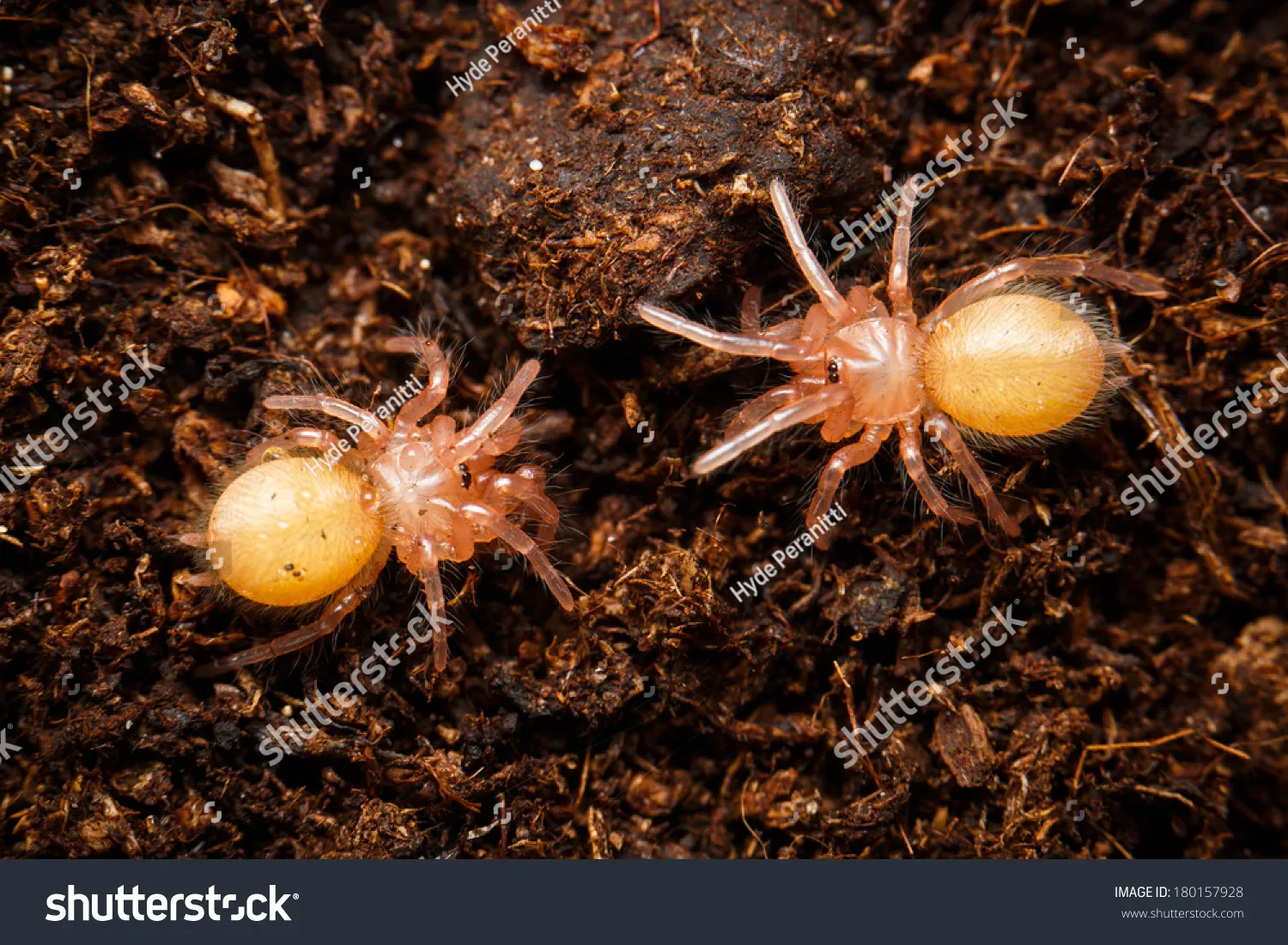
Anxiety is a common symptom associated with “Tarantula Child”, and homeopathy can be particularly helpful in reducing its impact. Homeopathic remedies are selected based on the specific type of anxiety the child experiences, such as fear, worry, or social anxiety. These remedies can help calm the nervous system, reduce feelings of fear and promote a sense of security. By addressing the emotional roots of the child’s anxiety, homeopathy can help children feel more confident and capable of managing their emotions in challenging situations. Over time, this can lead to a significant reduction in anxiety symptoms, improving their ability to participate in daily activities and social interactions without excessive worry.
Benefit 3 Improved Sleep Patterns
Sleep disturbances are often a significant issue for children experiencing “Tarantula Child” symptoms. Homeopathy can help improve sleep patterns by addressing the underlying causes of sleep difficulties. Homeopathic remedies can assist in calming the mind, reducing anxiety, and creating a more relaxed state conducive to sleep. Homeopathy can help children fall asleep more easily, stay asleep throughout the night, and wake up feeling refreshed. Improved sleep patterns contribute to better overall health and well-being, as adequate sleep is crucial for emotional regulation, cognitive function, and physical health. As sleep improves, children typically experience a reduction in daytime fatigue, irritability, and behavioral problems.
Benefit 4 Strengthened Immune System
Homeopathy is believed to support the immune system. While not a direct treatment for infections, it can help the body become more resilient. By strengthening the immune response, children may become less susceptible to frequent illnesses and recover more quickly when they do get sick. This is achieved by stimulating the body’s natural defense mechanisms. A stronger immune system means fewer sick days, reduced reliance on conventional medications, and improved overall health. Regular homeopathic treatment, alongside healthy lifestyle choices, can contribute to building a robust immune system, thereby protecting children from various health challenges.
Benefit 5 Behavioral Improvements
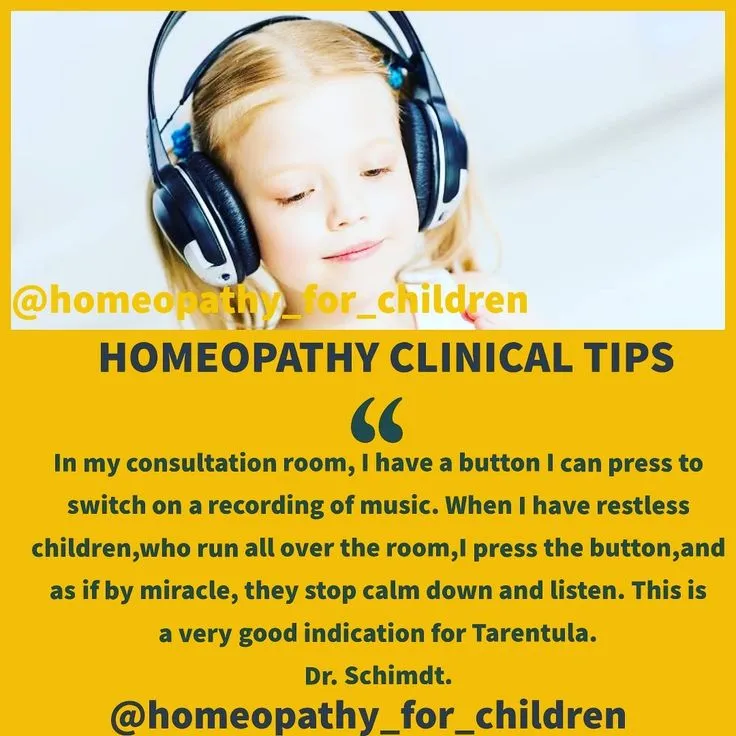
Children experiencing “Tarantula Child” symptoms often exhibit behavioral challenges that can significantly impact their daily lives. Homeopathy can play a role in improving these behaviors by addressing the underlying emotional and mental imbalances. Homeopathic remedies, selected based on the child’s specific behavioral patterns, can help reduce hyperactivity, impulsivity, and emotional outbursts. By promoting a sense of calm and emotional regulation, children can better manage their behaviors in various situations. Homeopathy aims to help children develop more adaptive coping strategies, improving their ability to follow instructions, interact with others, and participate in activities. This can lead to improved relationships and a more positive overall experience.
Benefit 6 Holistic Approach
Homeopathy offers a holistic approach that considers the whole child. Unlike treatments that may only focus on specific symptoms, homeopathy takes into account the child’s physical, emotional, and mental aspects. This comprehensive approach allows the homeopath to create a treatment plan tailored to the child’s unique needs and constitution. Homeopathy recognizes that all aspects of a child’s being are interconnected. By addressing the underlying causes of the child’s challenges, homeopathy aims to promote overall wellness, not just symptom relief. This holistic perspective is particularly beneficial for children experiencing complex behavioral and emotional issues, as it supports their overall growth and development.
Benefit 7 Gentle and Safe
One of the most significant advantages of homeopathy for “Tarantula Child” is its gentle and safe nature. Homeopathic remedies are highly diluted and prepared using a rigorous process, making them free from the side effects often associated with conventional medications. This makes homeopathy a particularly attractive option for children, whose developing bodies are often more sensitive to medications. The remedies work by stimulating the body’s natural healing response. The use of homeopathic remedies minimizes the risk of adverse reactions, making it a safe alternative for long-term use. This safety profile is a major benefit. Homeopathy offers a safe and effective way to support children’s health and well-being.
Choosing the Right Homeopathic Practitioner
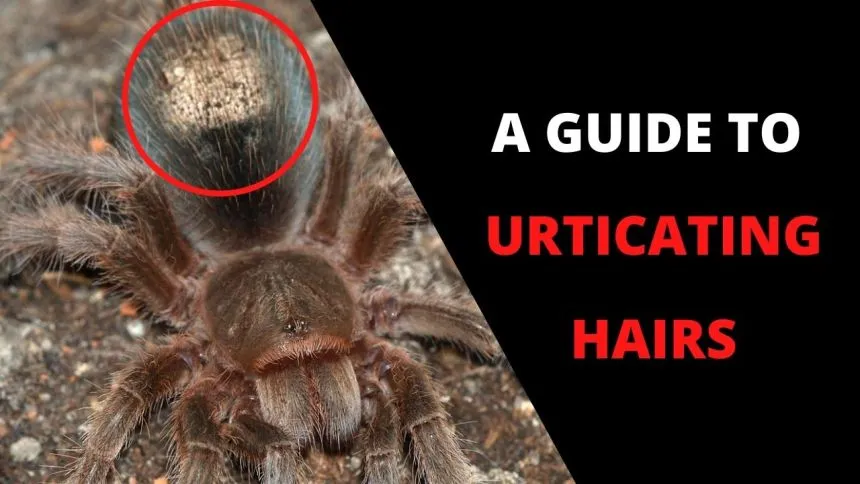
Finding a Qualified Homeopath
Finding a qualified homeopath is an essential step in seeking homeopathic treatment for a child. It is recommended to look for practitioners who have completed accredited training programs and are registered or certified by recognized homeopathic organizations. Checking their credentials ensures that they have the knowledge and skills necessary to provide safe and effective care. Consider the homeopath’s experience in treating children, as their expertise will be invaluable. Asking for recommendations from other parents or healthcare providers can also be helpful. When you contact a homeopath, ask about their approach to treatment, the remedies they commonly use, and the consultation process. A good homeopath will take the time to thoroughly understand your child’s needs and concerns before developing a personalized treatment plan.
What to Expect During a Consultation
The initial consultation with a homeopath typically involves a detailed discussion about your child’s health history, symptoms, and overall well-being. The homeopath will ask a wide range of questions to gain a complete understanding of the child’s physical, emotional, and mental state. You will be asked about specific symptoms, their onset, and the factors that make them better or worse. The homeopath will also inquire about your child’s temperament, personality, and any other relevant information. Be prepared to provide detailed information about your child’s lifestyle, diet, and environment. This in-depth assessment is crucial for the homeopath to select the most appropriate remedy. Subsequent follow-up appointments will be scheduled to monitor the child’s progress and make adjustments to the treatment plan as needed. It is essential to be open and honest with your homeopath during the consultation process to ensure the best possible outcome.
Homeopathic Remedies for Tarantula Child

Commonly Used Remedies
A homeopath will choose the specific remedy that best matches the individual child’s symptoms and constitution. Several remedies are frequently used in treating children with behavioral and emotional challenges. Some common remedies include Chamomilla, often used for irritability and tantrums; Calcarea carbonica, which can be helpful for children who are anxious and fearful; and Stramonium, sometimes prescribed for children with intense fears or night terrors. Lycopodium may be considered for children with low self-esteem or those who are bossy and domineering. It is important to remember that the best remedy for a child will be determined by a qualified homeopath based on their unique symptoms and characteristics. The selection of the correct remedy is crucial for achieving positive results.
Dosage and Administration
The dosage and administration of homeopathic remedies can vary depending on the individual child and the specific remedy prescribed. Homeopathic remedies are typically administered in the form of small pellets or liquid drops. The homeopath will provide specific instructions on how to take the remedy, including the frequency and timing of doses. These remedies are usually taken away from food and drinks, sometimes 15-30 minutes before or after meals. It is essential to follow the homeopath’s instructions carefully to ensure the best possible results. If you have any questions or concerns about the dosage or administration, do not hesitate to contact your homeopath for clarification. Remember to store the remedies in a cool, dry place, away from direct sunlight and strong odors.
Lifestyle Adjustments and Homeopathy
In addition to homeopathic remedies, certain lifestyle adjustments can support the effectiveness of treatment and enhance the child’s overall well-being. These adjustments can include dietary considerations, creating a calm environment, and implementing positive parenting strategies. Working with a homeopath to identify these factors and implement appropriate changes can maximize the benefits of the treatment. This approach focuses on creating an environment that supports healing and promotes optimal health.
Dietary Considerations
Diet plays a crucial role in children’s health and behavior. Certain dietary changes can have a positive impact on children experiencing “Tarantula Child” symptoms. Reducing the intake of processed foods, sugary drinks, and artificial additives is often recommended, as these can exacerbate hyperactivity and emotional imbalances. Encouraging a diet rich in whole foods, including fruits, vegetables, lean proteins, and whole grains, can provide essential nutrients that support brain function and emotional regulation. Some children may also benefit from avoiding or limiting potential food sensitivities, such as gluten or dairy, which can sometimes trigger behavioral issues. Working with a healthcare professional or nutritionist can help you identify the most appropriate dietary changes for your child.
Creating a Calm Environment
Creating a calm and supportive environment at home can significantly benefit children experiencing “Tarantula Child” symptoms. Minimizing exposure to overstimulating environments, such as excessive screen time, noisy settings, or overwhelming social situations, can help reduce anxiety and hyperactivity. Establishing a consistent daily routine, including regular mealtimes, bedtimes, and playtime, can provide a sense of security and predictability. Creating a designated space in the home where the child can relax and engage in quiet activities, such as reading or playing with calming toys, can provide a safe haven. Practicing relaxation techniques, such as deep breathing or mindfulness exercises, can also help children manage their emotions and reduce stress. By fostering a calm and supportive atmosphere, you can create an environment that promotes healing and emotional well-being for your child. (calm environment child)
The Future of Homeopathy for Tarantula Child
The future of homeopathy in supporting children with “Tarantula Child” symptoms appears promising. As more parents seek natural and gentle approaches to their children’s health, the demand for homeopathy is likely to grow. Continued research and clinical studies are needed to further explore the effectiveness of homeopathic treatments for these conditions. Increased awareness of the benefits of homeopathy can lead to broader acceptance and integration into conventional healthcare. As more healthcare professionals and parents become educated about homeopathy, it can play a more significant role in helping children with behavioral and emotional challenges to thrive. By embracing a holistic approach and focusing on the individual child’s needs, homeopathy can offer a valuable path towards improved well-being and a brighter future.
